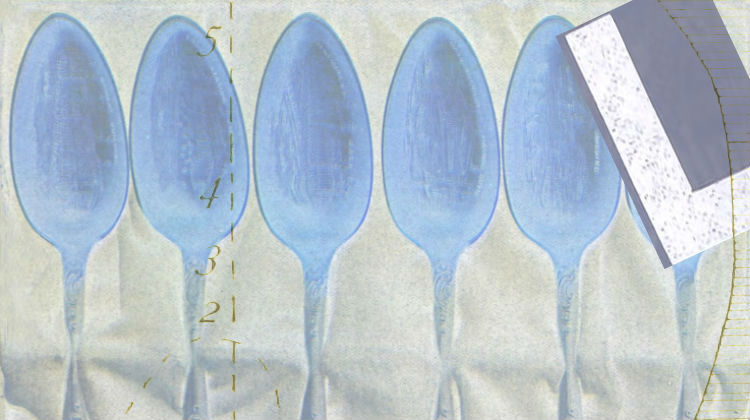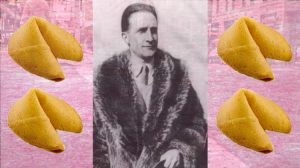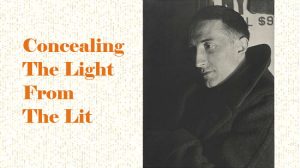
“I am a deserter” – Marcel Duchamp
I looked out the window. The leaves were turning yellow… turning towards death … or turning towards resurrection … No. Death …
Duchamp said when we die consciousness leaves us and we vanish …
“I came to take your blood.” I looked up. someone was standing at my side. “Oh, no,” I said. “My veins are scarred. Please don’t …”
Where was I?
There was noise coming from all directions … clattering sounds … people speaking in muffled tones… some screaming in the backdrop …. broken up by drug commercials, the sotto voce of side effects …
Where was I?
I thought back to Marcel Duchamp. But that was in spring. The blossoms were pink. The sky was bright. Now things were dark-filled with voices echoing human lies.
I remembered my last meeting with Duchamp. I remembered his obsessive interest in Don Draper.
“He invented The American Dream,” I said. “He knew it wasn’t true because he invented it. But he was a salesman. I lost track of him after 1968.”
Duchamp was intrigued. He asked me more about what happened after October, 1968 because that was the month Duchamp died. “I think Vietnam was America’s downfall,” I said.
Duchamp did not want to hear about war. “There were hippies and free love… Duchamp said that was always true, that it just became more popular. He wanted more facts on Don Draper.
“Don Draper wasn’t his name. It was the name of a dead man. Don Draper stole the name of a dead man to get out of the Korean war,” I said, wishing I had not brought up the word “war.”
“He was a deserter,” I said with finality. “He stole a dead man’s name.”
“I was a deserter,” Duchamp said. I knew that; I knew they spit at him in the street for deserting. “Even if I was 62, I was a deserter,” said Duchamp, looking down at his feet. “I was confused.”
He fell silent. I prayed he would speak.
“I should have joined The Resistance,” he said. He became more emotional than I had ever seen him; he spoke eagerly about his lover, Mary Reynolds, who worked for The Resistance. It was a great relationship,” he said, covering his eyes with his hands.
I asked Duchamp to tell me more about The Resistance in France.
“I don’t want to talk about politics,” he said.
Duchamp pointed to a shop. “The question of shop windows,” Duchamp said, pointing to a new shop, yet another gluten-free bakery, one of many sprouting up in the city. He told me to go in, to see what I could find.
“Why?” I asked.
“To undergo the interrogation of shop windows,” he said, motioning me to go in.
“No,” I said. “You’ll go away.”
He said I had to. “To undergo the interrogation of shop windows.”
I told him he made no sense.
“The exigency of the shop window,” he insisted.
“No,” I said again.
“I was a deserter … ” he said, holding his hand out, motioning me to hand him my flip phone, saying the flip phone was for collateral. He insisted I go in, that I’d get my phone back in the end. He told me to find just one thing I’d be willing to eat which was gluten-free.
“The shop window is proof of the existence of the outside world,” he was angry, impatient. I feared he would leave me if I didn’t follow his verses. I knew i couldn’t say no.
Before I went in he said, “I feel shame, not for the wrong things I have done, but for the right things that I have failed to do.”
The Gluten-Free Bakery was just another shop selling products to the susceptible. I looked in the refrigerator section stocked with coconut water and cookies made out of seaweed. I quickly grew tired of reading unpronounceable. I needed to find Marcel Duuchamp.
“Marcel Duchamp,” I screamed to the air.
He was not there.
Someone was pulling on my arm. I looked down. It was a homeless man with a placard around his neck which said, “Vietnam Vet. Hungry. Homeless.” He was barefoot, his feel were swollen, black. He smiled at me; he had no teeth.
“Can you give me a dollar?” he asked.
I reached in my bag and pulled out a dollar. When I leaned down to hand it to him I saw he was holding my flip phone.
“That’s my phone,” I said. “Please give it back. Did you see a man? A man with a pink shirt with green stripes, a man with a gray face?”
“I ain’t seen nobody, lady. Can you give me five dollars?”
“I’ll give you five dollars if you give me my phone,” I said.
“That’s not enough,” he said, holding the phone close to his chest.
I opened my wallet. I counted out twenty-seven dollars.
“Here,” I said. “I have twenty-seven dollars. You can have it all if you give me my phone.”
“Hand over the cash” he said.
“Only if you hand over the phone.”
“I’ll tell you what – you go across the street and buy me some chicken from that Halal truck. They won’t sell anything to me because I made the world safe for democracy. Bring the food back, with the rest of your money and you’ll get the phone.”
“Okay,” I yelled, pissed off but eager to find Duchamp again. My heart was beating hard and fast. “I’ll do it. But you better give me my phone back.”
Where was Duchamp?
“Word of honor, lady. I am an honorable veteran of The Vietnam War. I made the world safe for democracy. You can trust me.”
I rushed across the street and paid the guy in the Halal truck. I grabbed the chicken and rice dish. As I crossed the street the food dropped out of my hands. I tried to retrieve it but a truck or a bus or ….
… ohhhhhhhh …. such pain. looking up at the sky, then that guy, the homeless Vietnam vet – “My food,” he said. “My food. give me the money too.”
I could feel him grab my purse out of my hand.
… all went black.




Leave a Reply